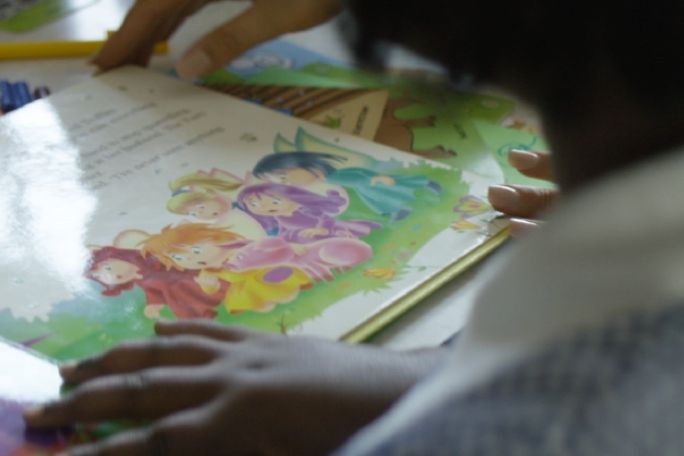Lesson summary
Students examine interviews as a communication mechanism. They consider strategies for framing questions and look at the interpersonal skills required. Students select an issue, consider the information they would like to find (and from whom), and develop interview questions that will help collect this information.
Learning intentions:
Students will...
- understand how effective interviews require consideration of both question framing strategies and interpersonal skills
- enhance and understand the importance of their interpersonal skills with respect to interviews.
Lesson guides and printables
Lesson details
Curriculum mapping
Australian curriculum content descriptions
Year 9 English:
- Understand that roles and relationships are developed and challenged through language and interpersonal skills (ACELA1551).
- Use interaction skills to present and discuss an idea and to influence and engage an audience by selecting persuasive language, varying voice tone, pitch, and pace, and using elements such as music and sound effects (ACELY1811).
- Use a range of software, including word processing programs, flexibly and imaginatively to publish texts (ACELY1748).
Year 10 English:
- Understand how language use can have inclusive and exclusive social effects, and can empower or disempower people (ACELA1564).
- Identify and explore the purposes and effects of different text structures and language features of spoken texts, and use this knowledge to create purposeful texts that inform, persuade and engage (ACELY1750).
- Use a range of software, including word processing programs, confidently, flexibly and imaginatively to create, edit and publish texts, considering the identified purpose and the characteristics of the user (ACELY1776).
General capabilities: Literacy, Personal and Social Capability, Critical and Creative Thinking, Ethical Understanding, ICT Capability
Cross-curriculum priorities: There are opportunities for students to engage with any of the cross-curriculum priorities across the scope of this unit. Direct or specific engagement with any of these can be made based on the unique attributes of the local community. Sustainability, Asia and Australia’s Engagement with Asia, Aboriginal and Torres Strait Islander Histories and Cultures.
Relevant parts of Australian Curriculum English Achievement Standards:
Year 9: By the end of Year 9, students analyse the ways that text structures can be manipulated for effect. They evaluate and integrate ideas and information from texts to form their own interpretations. They listen for ways texts position an audience. Students understand how to use a variety of language features to create different levels of meaning. In creating texts, students demonstrate how manipulating language features and images can create innovative texts. Students create texts that respond to issues, interpreting and integrating ideas from other texts. They make presentations and contribute actively to class and group discussions, comparing and evaluating responses to ideas and issues. They edit for effect, selecting vocabulary and grammar that contribute to the precision and persuasiveness of texts and using accurate spelling and punctuation.
Year 10: By the end of Year 10, students evaluate how text structures can be used in innovative ways by different authors. They evaluate other interpretations, analysing the evidence used to support them. They listen for ways features within texts can be manipulated to achieve particular effects. Students show how the selection of language features can achieve precision and stylistic effect. They explain different viewpoints, attitudes and perspectives through the development of cohesive and logical arguments. They develop their own style by experimenting with language features, stylistic devices, text structures and images. Students create a wide range of texts to articulate complex ideas. They make presentations and contribute actively to class and group discussions, building on others’ ideas, solving problems, justifying opinions and developing and expanding arguments. They demonstrate understanding of grammar, vary vocabulary choices for impact, and accurately use spelling and punctuation when creating and editing texts.
Unit of work: La Trobe University – Aspire Generation – English
Time required: 60 mins.
Level of teacher scaffolding: Medium – facilitate class discussion.
Resources required
- Student Worksheets – one copy per student OR computers/tablets to access the online worksheet
- Device capable of presenting a video to the class
- Interview Design and Facilitation Factsheet
Skills
This lesson is designed to build students’ competencies in the following skills:
- Communication
- Community engagement
- Creativity
- Critical thinking
- Ethical understanding
- Digital literacy
- Initiative
- Social skills
Additional info
This lesson supports La Trobe University’s Aspire Generation initiative, which empowers students to drive change through community engagement, volunteerism and leadership opportunities.


Welcome back!
Don't have an account yet?
Log in with:
By signing up to Cool.org you consent and agree to Cool's privacy policy to
store, manage and process your personal information. To read more, please see
our privacy policy here(Opens in new tab).
Create your free Cool.org account.
Many of our resources are free, with an option to upgrade to Cool+ for premium content.
Already have an account?
Sign up with:
By signing up to Cool.org you consent and agree to Cool's privacy policy to
store, manage and process your personal information. To read more, please see
our privacy policy here(Opens in new tab).